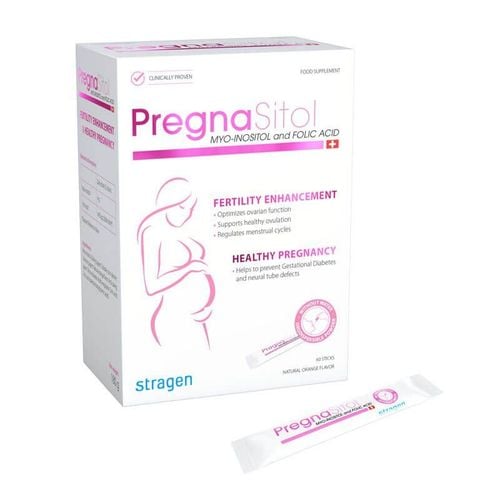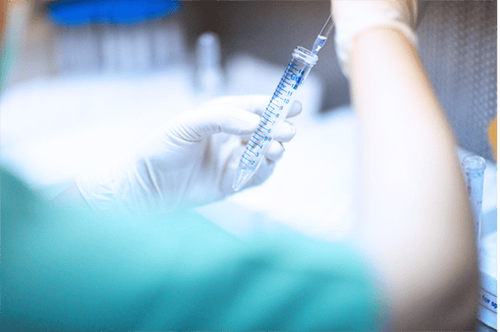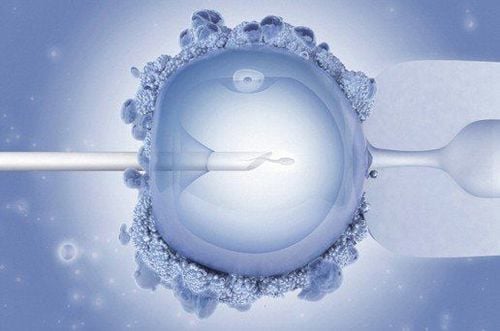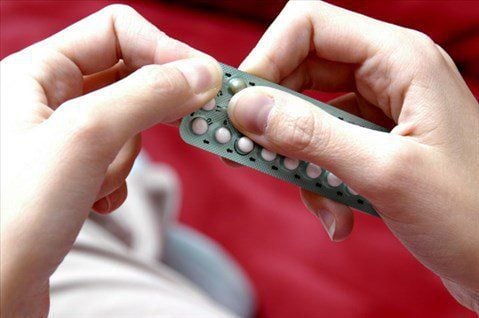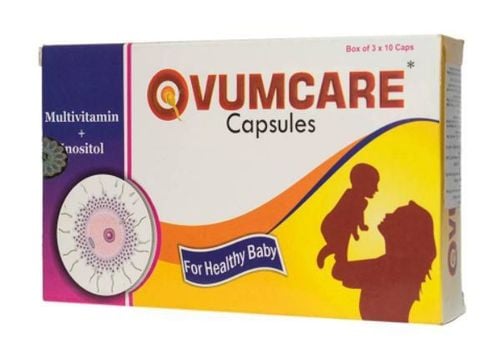This is an automatically translated article.
Many young people learning what to do when preparing for pregnancy will easily be overwhelmed by the multitude of new concepts, including specialized medical jargon. The following is a list that explains common phrases for people preparing for pregnancy and childbirth.
1. Medical terms from A - F
Artificial insemination - Artificial insemination Also known as intrauterine insemination, abbreviated as IUI. This is a fertility treatment in which sperm is inserted into the uterus through a long, thin tube at the time of ovulation. Although it has a lower success rate than In vitro fertilization (IVF), the IUI technique is simpler and less expensive.
Assisted reproductive technology (ART) Refers to all treatments that involve handling eggs or embryos outside of the body. These techniques are often combined with medication to increase the odds of a successful pregnancy.
Basal body temperature (BBT) - Basal body temperature The lowest body temperature in 24 hours, estimated by taking your thermometer when you wake up in the morning. Some women monitor their basal body temperature to predict ovulation. The day after ovulation, hormonal changes will cause a slight increase in body temperature.
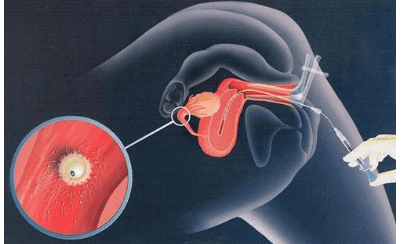
Thụ tinh nhân tạo
Blighted ovum - Empty / Empty Egg The egg is fertilized and implanted in the uterus but does not develop into an embryo. The mother still missed her period and had a positive pregnancy test, but then spontaneously miscarried. This condition is also known as an anembryonic pregnancy or premature failure.
Bromocriptine A medicine prescribed by your doctor if your body produces too much prolactin - a substance that interferes with ovulation and causes irregular periods.
Cervical mucus (CM) - A type of vaginal discharge that varies in texture, color and quantity throughout the menstrual cycle, affected by fluctuations in hormone levels. Some women track this mucus change to predict when they ovulate.
Charting Charts track body temperature, cervical mucus and other symptoms to determine the timing of the phases of the menstrual cycle, thereby accurately predicting ovulation.
Clomiphene (brand names Clomid and Serophene) A drug that stimulates egg production in women and improves sperm count or quality in men. Usually indicated for use before artificial insemination.
Ectopic pregnancy - Ectopic pregnancy When the fertilized egg is located outside the uterus, it cannot develop into a fetus and can be dangerous for the mother. In this case, actively ending the pregnancy is the only option. Most ectopic pregnancies occur in the fallopian tubes.
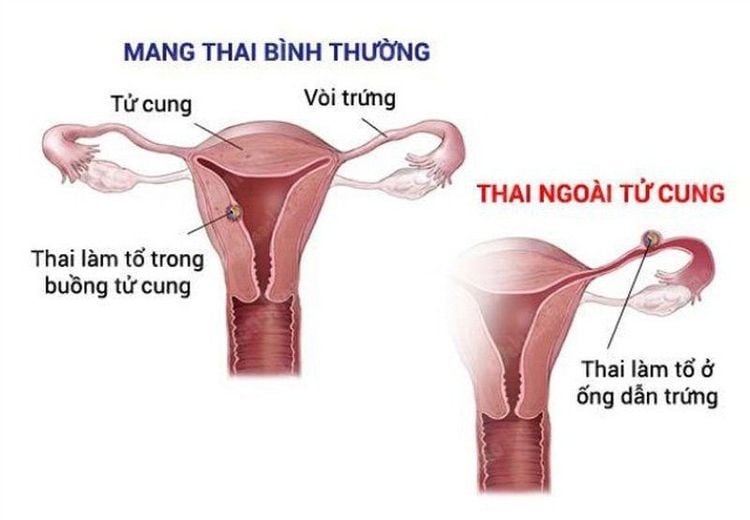
Thai ngoài tử cung
Egg freezing - Egg freezing Maintain female fertility by removing and freezing eggs. When you want to use it later, the eggs will be thawed and combined with sperm in a lab to create embryos, which are then placed in the uterus (same process as IVF). This method is also known as oocyte cryopreservation.
Endometriosis - Endometriosis The tissue that lines the uterus (endometrium) grows abnormally, extends beyond it, and can cause scarring or pain. About a quarter of women with endometriosis have trouble conceiving.
Folic acid A vitamin supplement recommended for all women of reproductive age. Taking 400 micrograms of folic acid daily, starting at least 1 month before trying to conceive, significantly reduces the risk of neural tube defects, such as spina bifida.
Follicle-stimulating hormone (FSH) - Follicle-stimulating hormone secreted by the pituitary gland, responsible for stimulating the development of follicles and playing a role in triggering ovulation.
Follicular phase - Follicular phase A phase in the menstrual cycle, which begins on the day of menstruation and ends with ovulation. During this phase, the ovaries prepare to release an egg, and the lining of the uterus builds up to prepare for pregnancy if fertilization occurs. In women with a 28-day cycle, this phase lasts about 9-21 days.
2. Medical terms from G - L
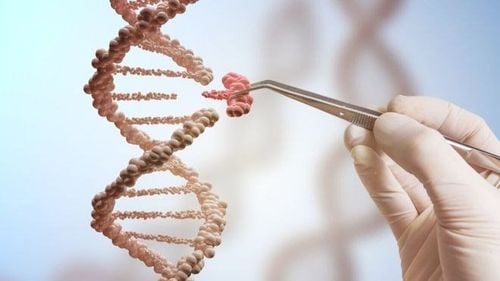
Gen bị đột biến
Gamete intrafallopian transfer (GIFT) - Gamete intrafallopian transfer A fertility treatment similar to IVF, but instead of fertilization in a lab, sperm and eggs are placed into the fallopian tubes through an incision. small in the abdomen. If successful, fertilization takes place inside the body, resulting in the embryo traveling to and implanting in the uterus. However, this technique is rarely used today because it is more invasive and risky than IVF.
Genetic carrier screening A test in the expectant mother or father to help find genetic mutations that can cause serious genetic disorders in the baby. It's best to get screened when you're planning to get pregnant. In the case of either carrier, the option of artificial insemination or adoption may be considered, which increases the chances of a healthy baby.
Gestational surrogacy - Surrogacy Service where another woman becomes pregnant and gives birth to your baby. The egg and sperm can be yours or half received from an anonymous donor.
Gonadotropin A drug that stimulates the ovaries to produce eggs, as well as assisting men with hormone imbalances that cause low sperm count or poor sperm quality. The drug is usually used before IVF if clomiphene is not effective.
Human chorionic gonadotropin (hCG) - Human sex hormone Produced by the developing placenta, after a fertilized egg implants in the uterus. If a home pregnancy test detects this hormone in your urine, you will get a positive result.
Hypogonadism - Male hypogonadism A deficiency of sex hormones prevents the testes from making sperm. About 2% of men suffer from infertility due to this condition, but luckily it can be treated with medication.
In vitro fertilization (IVF) - In vitro fertilization The most popular high-tech infertility treatment. Many eggs are combined with sperm in a laboratory. After fertilization occurs, one or more high-quality embryos are placed into the uterus through the cervix. The rest can be frozen for later use or donated.
Recommended video:
Infertility - Infertility A person of childbearing age who has not been able to get pregnant after trying for 1 year. Infertility doesn't mean you'll never conceive, it's just a general medical term. Many couples diagnosed with infertility are still able to have children, often with the help of fertility treatments.
Intracytoplasmic sperm injection (ICSI) - Intracytoplasmic sperm injection An in vitro fertilization technique in which a sperm is injected directly into an egg. This method is often useful for couples who have problems with sperm quality or quantity.
Irregular period - Irregular Menstrual Cycle A menstrual cycle that varies in length and duration, lasting from month to month. In some cases, irregular periods can signal a problem affecting fertility.
Last menstrual period (LMP) - Last menstrual period The date of the last menstrual period, helping your doctor estimate your due date and how many months pregnant you have been.
Recommended video:
Luteal phase - The luteal phase A phase in the menstrual cycle, between ovulation and the start of the next period. The length of this phase varies greatly from woman to woman, in the average being about 2 weeks, if too short can affect fertility. During the luteal phase, estrogen and progesterone levels rise higher to prepare the lining of the uterus for pregnancy.
Luteinizing hormone (LH) A reproductive hormone that peaks just before you ovulate, helping urine test kits predict when you ovulate.
3. Medical terms from M - Z
Miscarriage - Miscarriage The spontaneous loss of pregnancy during the first 20 weeks accounts for about 10-20% of pregnancies and more than 80% of miscarriages take place before 12 weeks.
Mittelschmerz - Mittelschmerz Syndrome A feeling of lower abdominal pain or cramping around the time of ovulation in some women, which can last for a few minutes or days. Most women do not experience any physical symptoms when ovulating.
Molar pregnancy - Egg pregnancy (False pregnancy) The fertilized egg develops abnormally (not an embryo) and implants in the uterus. This condition usually causes heavy vaginal bleeding during the first 3 months. If you are diagnosed with a false pregnancy, you may need surgery to remove the abnormal tissue.
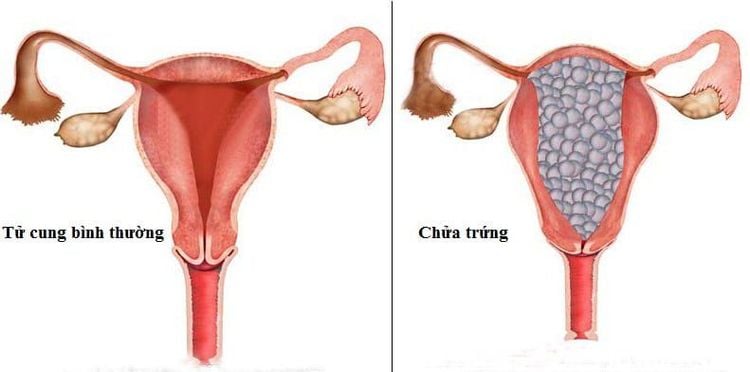
Chửa trứng
Ovulation - Ovulation A phase in the menstrual cycle, when an egg (or more) is released from an ovary. You are most fertile from 2 days before to 1 day after ovulation.
Ovulation predictor kit (OPK) - Ovulation predictor helps to determine the most fertile days in the cycle. Urine test kits will check for an increase in luteinizing hormone, which occurs 24 - 36 hours before ovulation. Saliva test kits will look for an increase in estrogen levels.
Polycystic ovarian syndrome (PCOS) - Polycystic ovary syndrome A hormonal imbalance that prevents regular ovulation and can lead to serious health problems. Other common symptoms include weight gain and hirsutism. This is the most common cause of female infertility.
Preconception checkup - Antenatal checkup Review of a complete medical history and physical examination, performed several months to 1 year at the start of pregnancy preparation. This service helps determine what steps to take when preparing for pregnancy and provides your doctor with useful background information about your health.
Preimplantation genetic diagnosis (PGD) - Preimplantation genetic diagnosis Identifying certain genetic defects in embryos prior to implantation through IVF techniques. Consider genes for cystic fibrosis and sickle cell anemia, for example.
Preimplantation genetic screening (PGS) - Preimplantation genetic screening Determines the number of chromosomes in an embryo before it is transferred to the uterus through IVF. Only embryos with a normal number of chromosomes are used, as they increase the odds of a successful pregnancy and developing into a healthy baby.
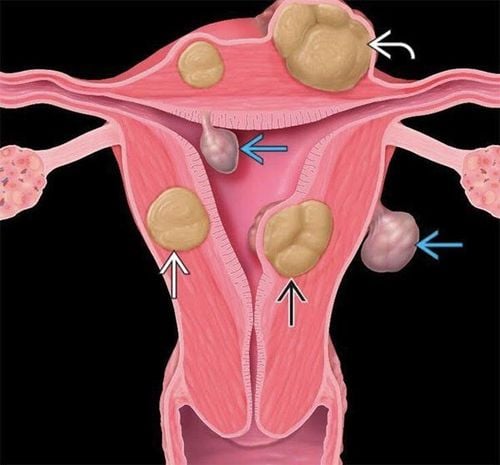
U xơ tử cung cản trở khả năng mang thai
Sperm allergy - A rare immune reaction to sperm that can cause itching, burning, swelling, and other allergic symptoms within minutes to 1 hour of contact with semen. A sperm allergy doesn't affect fertility, but can make sex uncomfortable or even dangerous. For women with severe symptoms, IVF or IVF may be the right choice.
Traditional surrogacy - Traditional surrogacy When another woman, using her own eggs, becomes pregnant and gives birth to you.
Uterine fibroids - Uterine fibroids Tumors that develop from muscle tissue in the uterus. Although it rarely develops into cancer, it can cause pain and bleeding and interfere with your ability to get pregnant.
Zygote intrafallopian transfer (ZIFT) - A fertility treatment in which an egg is fertilized with sperm in a laboratory, then placed into the fallopian tube through a small incision in the abdomen . One or more fertilized eggs - called zygotes, must travel on their own and arrive implanted in the uterus. This is an invasive fertility treatment, so it's rarely done now.
Some problems in a previous pregnancy can increase the risk of having the same problem in a future pregnancy. These problems include early miscarriage, stillbirth, premature birth, high blood pressure, preeclampsia, and gestational diabetes. However, with proper care before and during pregnancy, the chances of having these risks will not be repeated. Therefore, to prepare for a healthy pregnancy, both husband and wife should check their reproductive health 3-5 months before becoming pregnant.
The wife should:
Get vaccinated before pregnancy (especially against rubella because rubella in pregnancy is extremely dangerous ) Genetic testing to screen for genetic diseases before pregnancy Check for secondary infections In particular, women over 35 years of age, if they want to become pregnant (especially if they have never been pregnant), will have to have a very detailed health check because pregnancy at this age often problems: Ovarian failure, premature birth, higher risk of birth defects, placenta previa, preeclampsia. The husband should:
Check reproductive health, detect diseases of testicular atrophy, physiological weakness, weak sperm... Sexually transmitted diseases, especially those that cannot be cured, are extremely dangerous. Vinmec currently has many comprehensive health care programs for couples, pregnant mothers and their unborn babies, including basic pre-marital examination packages, advanced pre-marital examination packages, and maternity packages. . Vinmec has a team of experienced doctors in the fields of obstetrics and gynecology, IVF, stem cells, gene technology, capable of synchronously and comprehensively deploying the most advanced assisted reproductive techniques today.
Please dial HOTLINE for more information or register for an appointment HERE. Download MyVinmec app to make appointments faster and to manage your bookings easily.
Reference source: babycenter.com
MORE:
What to prepare before getting pregnant? What you need to know about vaccinations for pregnant women Vaccinations for pregnant women and what you need to know




